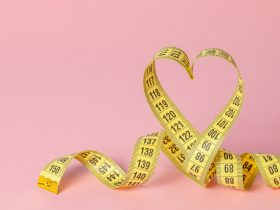When it comes to weight loss, finding nutritious snacks that keep you feeling full and satisfied is key. Sunflower seeds are emerging as a popular choice due to their nutrient density and potential health benefits.
Nutritional content of sunflower seeds
Sunflower seeds are a nutritional powerhouse. They are rich in healthy fats, including monounsaturated and polyunsaturated fats, which contribute to satiety and overall heart health. Additionally, they contain a good amount of protein, dietary fiber, vitamins (such as vitamins E and B vitamins), and minerals (like magnesium and selenium).
The link between sunflower seeds and weight loss
The combination of healthy fats, protein, and fiber in sunflower seeds can play a role in weight management. Healthy fats help regulate appetite and prevent overeating, while protein and fiber work together to increase feelings of fullness and support digestive health.
Incorporating sunflower seeds into your diet
Adding sunflower seeds to your diet is easy and versatile. You can sprinkle them over salads, yogurt, or oatmeal, or enjoy them as a standalone snack. They provide a satisfying crunch and a nutty flavor that can enhance various dishes.
A possible weight-loss assistance
Although studies on the effects of sunflower seeds on weight loss are limited, the seeds’ nutrients may facilitate weight loss by enhancing satiety, protecting lean muscle mass, and promoting program adherence.
Snacks help stave off hunger until the next meal, which can help limit consumption at that meal.
While studies on sunflower seeds are lacking, those on related snack items, such as almonds, show that they help people feel full and don’t cause them to overeat later.
Possible aid in preserving muscular mass
Studies have indicated that people whose bodies include a greater proportion of muscle burn more calories at rest.
Studies have shown that as much as 35% of weight loss might occur from muscle when dieting.
Possible aid in diet adherence
A weight-loss plan that works is one that you can follow. Sunflower seeds, which are high in fiber, could be beneficial. Experts recommend that women get 25 grams of fiber per day, while men need 38 grams.
Supplement your diet with sunflower seeds
Sunflower seeds are a nutritious food choice that can support your weight-loss efforts.
Sunflower seeds can be purchased either shelled or unshelled. They come in a variety of flavors and textures, including raw and roasted forms. Some wholesome preparations for sunflower seeds are as follows:
On their own. Sunflower seeds, whether shelled or not, are a healthy and convenient snack.
Packing mix. Combine sunflower seeds with other nuts, seeds, and dried fruit for a tasty snack.
Used as a garnish. Sunflower seeds in their shells are a tasty addition to a variety of meals.
We spread it on toast with sunflower seeds. Use sunflower seed butter as a spread on whole grain toast or crackers or as a fruit dip.
Remember that some varieties of sunflower seeds tend to have a higher salt content than others. While the body needs salt, too much of it can cause hypertension. Avoid consuming excessive amounts of salt by selecting unsalted, lightly salted, or low-sodium options. Consider switching to unsalted sunflower seeds instead of flavored varieties.
It’s also possible to find sugar in processed foods that use sunflower seeds or sunflower seed butter. Since added sugars contribute calories without providing many nutrients, cutting back on them may help those wanting to shed extra pounds.
While a tablespoon of sunflower seeds has about the same number of calories as peanut butter, sunflower seed butter has nearly twice as many calories per tablespoon. If you want to maintain a healthy weight, it’s important to pay attention to portion sizes.
Incorporating sunflower seeds into your diet can be a tasty and effective way to support your weight-loss journey. Their nutrient profile, along with their ability to promote feelings of fullness and provide sustained energy, makes them a valuable addition to a healthy lifestyle.
















Find Us on Socials